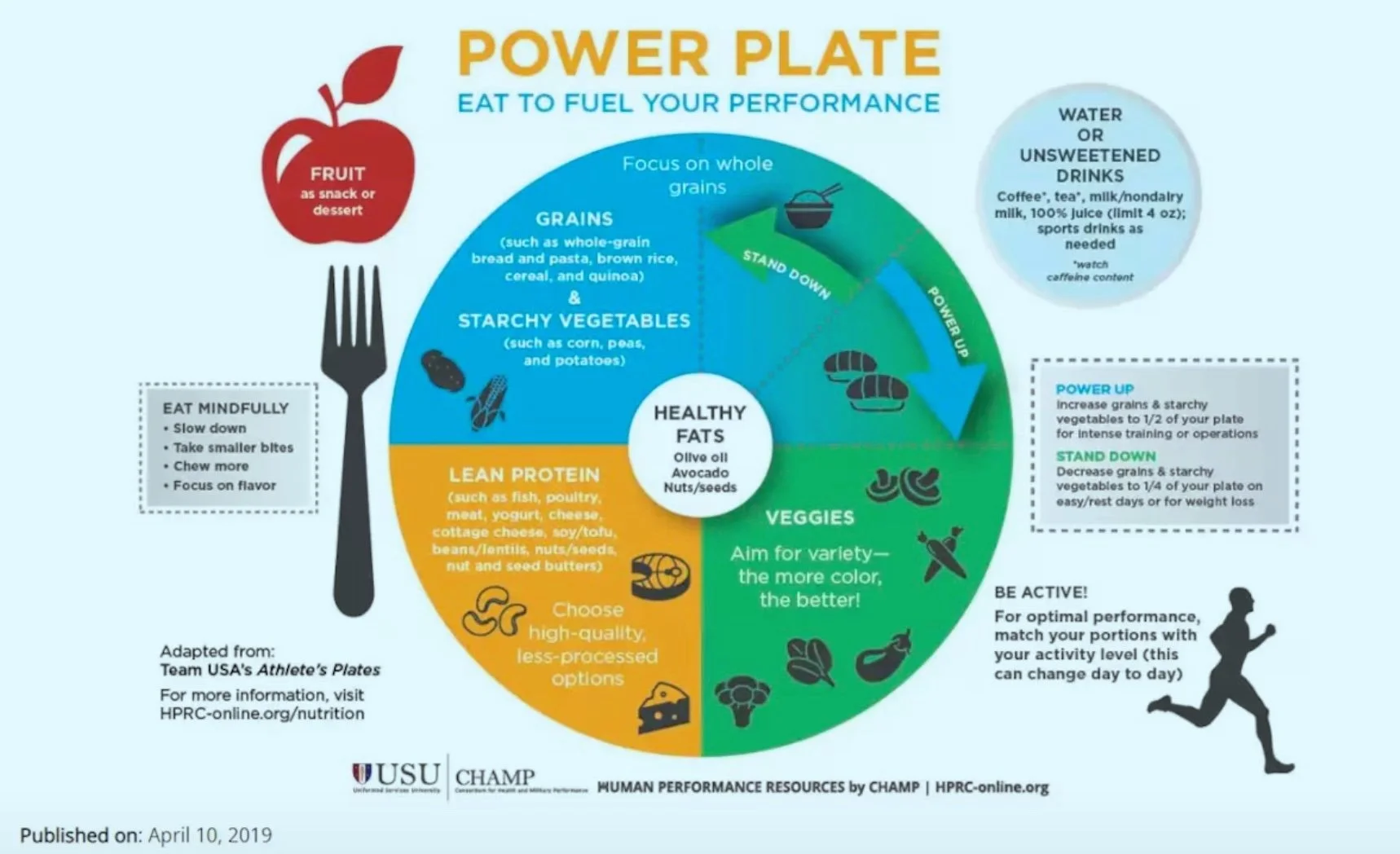Fueling Endurance: What We Learned from Sports Dietitian Meg Whitbeck
VITAL Ventures recently hosted a special edition of our “Ask the Expert” series featuring sports dietitian Meg Whitbeck, MS, RDN, Co-Founder of Nu, LLC. As we train for high-stakes endurance challenges like KENAI III and the Grand Canyon, we’ve learned that mastering your nutrition is just as critical as physical training. From fueling for performance to recovering smarter, Meg's science-based strategies are helping our teams level up in every phase of training.
Meet Our Expert: Meg Whitbeck, MS, RDN
Meg brings over 15 years of experience in sports nutrition, endurance fueling, and medical nutrition therapy. Her unique expertise in molecular genetics and nutrigenomics adds a powerful layer to the personalized guidance she offers athletes.
Here are the key insights we learned and plan to put into action as we train for our upcoming adventures.
Key Takeaways: How to Fuel for Endurance Events
Meg taught us that training isn’t just physical—it’s physiological. You’re conditioning your brain, digestive system, and metabolism, too. As she explained, "We're training our brain, our cardiovascular system, our lungs, our stomach, and even our bowels. Each person is an individual, and there's no cookie-cutter formula that works for everyone."
This holistic approach resonated strongly with our teams, particularly her insight that successful nutrition strategies must work with all body systems simultaneously.
Macronutrient Guide for Endurance Athletes
Fuel breakdown: 55% carbs, 20–25% protein, 20–25% fat
55% Carbohydrates - Your primary fuel source
20-25% Protein - For building, repairing, and protecting tissues
20-25% Fat - Long-burning fuel and essential for healthy cell production
Why This Balance Matters
Carbohydrates aren't just pasta and rice - they include all fruits and vegetables too. These are your "high-value carbs" that come packed with vitamins and minerals. "Low-value carbs" like sports gels and sugars have their place during events for quick fuel.
Fat isn't just long-burning fuel - it's essential for building every new cell in your body. Your cell membranes are made of fat because it's flexible and permeable, allowing nutrients to flow in and waste to flow out.
The Power Plate: A Daily Nutrition Blueprint
This adapted Team USA plate is a simple visual for meal planning during different phases of your training.
One of the most practical tools Meg shared was the Team USA Power Plate, which she keeps on her own refrigerator at home. This visual guide helps athletes understand when to "power up" with more grains during heavy training phases and "stand down" with more vegetables during recovery days.
Our Team's Key Takeaways from the Power Plate:
Include water or unsweetened drinks at every meal
Eat mindfully - this simple practice improves food choices dramatically
Use fruit as snacks and desserts, especially during power-up phases
Adjust grain portions based on your training intensity
Chart Source: Human Performance Resources at Champ.
Our Game Plan: Implementing Meg's Three-Phase Approach
Meg broke down event nutrition into three critical phases, which our teams are now incorporating into our training protocols:
Phase 1: Before the Event - Carb Loading Week
Days 4-5 Before: Start with moderate carb increase (example based on a 150-170 pound athlete)
Aim for ~3-5 g/kg body weight daily (i.e. ~200–300g for a 150-170 pound athlete)
Add extras like sorbet after dinner or afternoon juice
Days 1-3 Before: High carb intake with exercise taper
Aim for ~8-10 g/kg body weight daily (i.e. ~400–500g for a 150-170 pound athlete)
Focus on lower-fiber, easily digestible carbs
Expect to gain 2-3 pounds (this is stored energy and water!)
Sample High-Carb Day:
Breakfast: Pancakes with maple syrup and banana
Snack: Applesauce pouches with pretzels
Lunch: White rice bowl with beans and tortilla
Snack: Fig bars and juice
Dinner: Pasta with marinara sauce
Evening: Rice cake with honey and jam, plus sorbet
Phase 2: During the Event - Real Fuel on The Trail
Hydration Needs: Expect to need 0.5-1 liter per hour depending on conditions
Use electrolyte tablets/mixes between meals
Plain water is fine with food (food contains natural electrolytes)
In hot, dry conditions like the Grand Canyon, lean toward 1 liter per hour
Fueling Strategy:
Eat every 45-75 minutes
Target 30-60 grams of carbs per hour
Combine fast and slow carbs (crackers + fruit, tortilla + honey + peanut butter)
Lower intensity = better tolerance for protein and fat
Trail-Tested Food Examples:
Dates and bananas for quick energy
PB&J sandwiches (freeze uncrustables so they thaw in your pack)
Tortillas with honey or jam
Real sandwiches with low-fat condiments for lunch
Emergency backup: gels, extra electrolyte tabs, salt packets
Phase 3: After the Event - Prioritize Recovery
Recovery Window: Eat within 60 minutes of finishing
Target 3:1 carbs to protein ratio
Chocolate milk, rice and beans bowl, or smoothie with peanut butter toast
Rehydrate and replace electrolytes
Don't skip this meal - your future performance depends on proper recoveryHydration Plan
Common Nutrition Mistakes (and How to Avoid Them)
From under-fueling to skipping recovery, Meg helped us identify the most common performance-killers—and how to course correct.
Chronic under fueling - Especially problematic for women, leading to fatigue, poor recovery, and injury risk
Starting dehydrated - Begin hydrating a full week before your event
Relying only on gels - Can cause stomach upset and doesn't provide sustained energy
Forgetting electrolytes - Crucial when sweating heavily for hours
Skipping recovery nutrition - Sets you up for poor performance next time
From Knowledge to Action: How VITAL Is Applying Meg’s Advice
Our teams are now:
Training our digestive systems during workouts
Testing foods in real-time on long hikes
Tracking hydration and energy response to dial in what works
Immediate Actions Based on Meg's Nutrition Training:
Test Everything During Training: As Meg emphasized, "Never try new foods or strategies on event day." Our teams are now systematically testing trail foods during weekend training hikes.
Track Performance Data: We're implementing Meg's recommendation to note what foods work at different intensities, hydration rates, and food combinations that settle well.
Train Our Digestive Systems: Following Meg's advice that "your stomach needs training too," we're practicing eating while exercising during all training sessions.
Final Thoughts: Fuel for Your Future Performance
Meg’s personalized, science-driven approach aligns beautifully with VITAL’s philosophy: that the best adventures are built on thoughtful preparation, consistency, and full-body health. This expertise has fundamentally shifted how VITAL Ventures approaches nutrition for our endurance challenges. Her evidence-based strategies go beyond basic fueling to encompass the complete physiological demands of multi-day adventures.
The key insight that resonated most with our teams was Meg's approach: "There is no cookie cutter with me, but I will give you guidance to get you started and then go from there." This individualized methodology aligns perfectly with VITAL's commitment to empowering each team member to reach their peak performance.
As we continue training for KENAI III and our Grand Canyon adventure, we're grateful for Meg's expertise in helping us understand that successful endurance nutrition isn't about perfection—it's about consistency, preparation, and supporting every system in our bodies for optimal performance.
Fueling knowledge gets us adventure ready!
See you on the trail,
Libby
Special thanks to Meg Whitbeck, MS, RDN, Registered Dietitian and Co-Founder of Nu, LLC, for sharing her expertise with the VITAL Ventures team. Her insights are already transforming how we approach nutrition in our training and daily lives.
About the Expert: Meg Whitbeck, MS, RDN
Meg is a registered dietitian, endurance athlete, and sports nutrition educator with over 15 years of experience. She specializes in performance nutrition, complex medical cases, and molecular biology-informed coaching.



